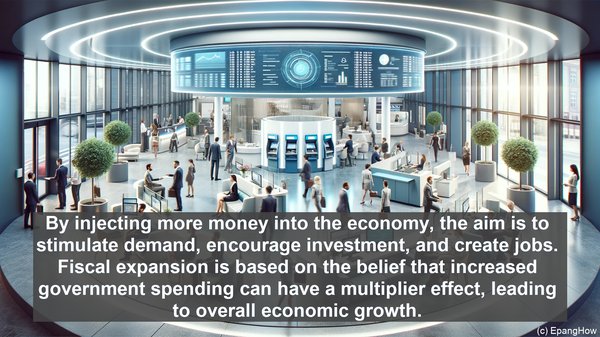Introduction: The Significance of Fiscal Policies
Hello everyone, and welcome to today’s article. When it comes to managing an economy, governments have a range of tools at their disposal. Among these, fiscal policies play a vital role. Today, we’ll be focusing on two key strategies: fiscal consolidation and fiscal expansion. While both are aimed at influencing the economy, they have distinct objectives and implications. Let’s dive in!
Fiscal Consolidation: A Focus on Stability
Fiscal consolidation, often referred to as austerity measures, is an approach where a government aims to reduce its budget deficit or even achieve a budget surplus. This is typically done through a combination of spending cuts and revenue increases. The underlying idea is to ensure fiscal stability, reduce the burden of debt, and instill confidence in the economy. During times of economic growth, fiscal consolidation can be seen as a proactive measure to prevent potential imbalances in the future.

Fiscal Expansion: Stimulating Economic Growth
On the other hand, fiscal expansion involves increasing government spending and/or reducing taxes to boost economic activity. This strategy is often employed during times of recession or slow growth. By injecting more money into the economy, the aim is to stimulate demand, encourage investment, and create jobs. Fiscal expansion is based on the belief that increased government spending can have a multiplier effect, leading to overall economic growth.

Balancing Act: The Challenges
While both fiscal consolidation and fiscal expansion have their merits, they also come with challenges. In the case of fiscal consolidation, the immediate reduction in government spending can have a contractionary effect on the economy. This, in turn, can lead to lower tax revenues and potentially hinder growth. On the other hand, fiscal expansion, if not managed carefully, can result in a higher budget deficit, increased borrowing, and the risk of inflation. Striking the right balance is crucial.
The Role of Timing and Context
It’s important to note that the suitability of fiscal consolidation or fiscal expansion depends on the prevailing economic conditions. For instance, during a severe recession, the focus may be on immediate fiscal expansion to prevent a prolonged downturn. However, during periods of sustained growth, a gradual shift towards consolidation might be necessary to ensure long-term stability. Flexibility and adaptability are key.
